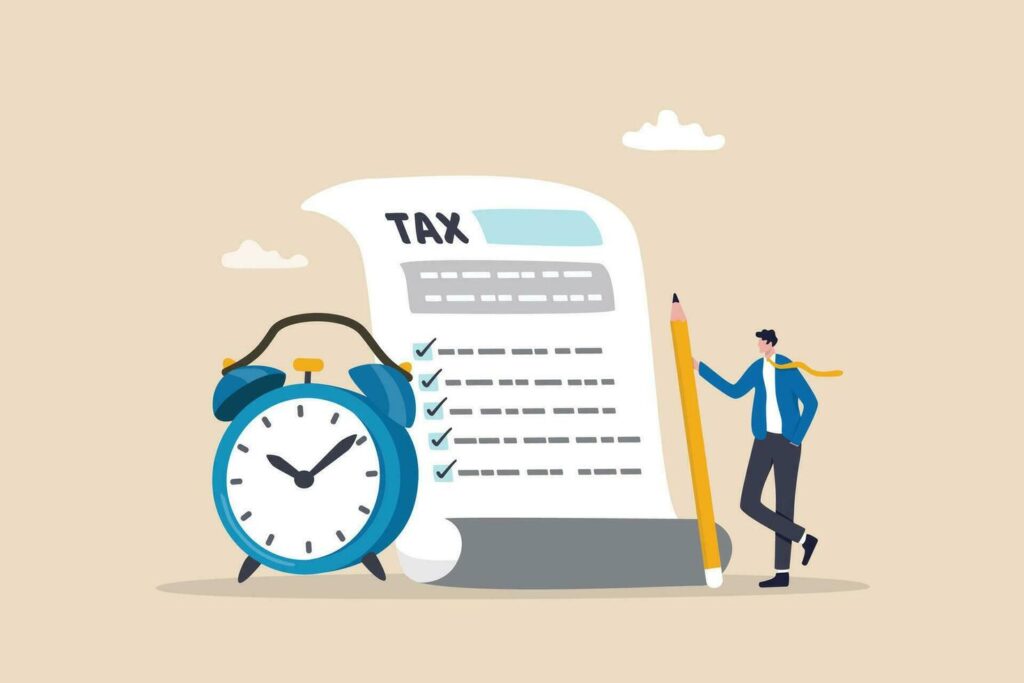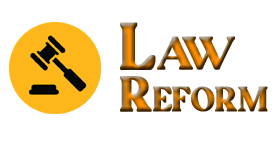Strategic tax solutions are essential for businesses and individuals alike in order to maximize returns and minimize liabilities. By understanding the concept of strategic tax solutions, individuals can effectively plan their taxes, take advantage of tax-efficient investment strategies, utilize tax credits and deductions, avoid common tax pitfalls, and implement effective tax reduction strategies. The role of tax professionals in strategic tax planning is also crucial, as they can provide guidance in choosing the right tax advisor and benefiting from professional tax guidance. Additionally, future trends in strategic tax solutions, such as the impact of changing tax laws and adapting to global tax developments, should be considered for long-term success in tax planning and management.
Understanding the Concept of Strategic Tax Solutions
Tax planning is a strategic approach to managing one’s financial affairs by tax planner to minimize tax liabilities while staying within the bounds of the law. It involves proactive measures and careful consideration of various factors, such as income, assets, expenses, and investment opportunities. Businesses and individuals can benefit significantly from tax planning by ensuring compliance, minimizing tax burdens, and maximizing after-tax returns.
The Importance of Tax Planning
Tax planning is crucial for individuals and businesses as it helps them legally minimize their tax liabilities and keep more of their hard-earned money. By planning ahead and making informed decisions, individuals can take advantage of various tax-saving opportunities, such as deductions, credits, and exemptions, and avoid costly mistakes that could result in penalties or missed opportunities.
See Also: How Professional Planning Impacts Your Bottom Line

Key Elements of Strategic Tax Solutions
Strategic tax solutions involve a comprehensive approach that encompasses several key elements. These include:
- Understanding tax laws and regulations
- Regularly reviewing and updating tax strategies
- Optimizing income and expenses
- Minimizing tax liabilities through legal means
- Applying tax credits and deductions
Understanding tax laws and regulations is a fundamental aspect of strategic tax planning. Tax laws are complex and constantly evolving, making it crucial for individuals and businesses to stay updated on the latest changes. By staying informed, taxpayers can ensure that they are taking advantage of all available tax-saving opportunities and avoiding potential pitfalls.
In addition to understanding tax laws, regularly reviewing and updating tax strategies is essential for long-term success. Tax planning is not a one-time event; it requires ongoing evaluation and adjustment to adapt to changing circumstances. By regularly reviewing their tax strategies, individuals and businesses can identify new opportunities, address potential risks, and optimize their overall tax position.
Maximizing Returns through Strategic Tax Solutions
One of the primary benefits of strategic tax solutions is the ability to maximize returns by implementing tax-efficient investment strategies and utilizing available tax incentives.
When it comes to tax-efficient investment strategies, strategic tax solutions can be a game-changer. By carefully structuring investments, individuals and businesses can minimize tax liabilities and maximize returns. This can be achieved through a variety of tactics, such as utilizing tax-advantaged accounts and implementing strategic asset allocation.
Let’s delve deeper into tax-advantaged accounts. These accounts, such as Individual Retirement Accounts (IRAs) or 401(k) plans, offer unique tax benefits that can significantly impact your returns. Contributions made to these accounts are often tax-deductible, meaning you can reduce your taxable income for the year. Additionally, any earnings within these accounts grow tax-deferred, allowing your investments to compound over time without being eroded by annual taxes. When you eventually withdraw funds from these accounts, you may be subject to taxes, but the hope is that you’ll be in a lower tax bracket during retirement, resulting in even greater savings.
Strategic asset allocation is another key component of tax-efficient investment strategies. By carefully diversifying your portfolio across different asset classes, such as stocks, bonds, and real estate, you can potentially minimize your tax burden. For example, certain investments may generate more taxable income than others. By strategically allocating your assets, you can balance high-income generating investments with tax-efficient ones, ultimately optimizing your returns.
But tax-efficient investment strategies are just one piece of the puzzle. To truly maximize returns through strategic tax solutions, it’s crucial to effectively utilize tax credits and deductions. Tax credits, such as the Earned Income Tax Credit or the Child Tax Credit, can directly reduce the amount of tax owed. These credits are often based on specific criteria, such as income level or the number of dependents, and can result in substantial savings. It’s important to stay informed about the various tax credits available to you, as they can significantly impact your overall tax liability.
Deductions, on the other hand, work by reducing your taxable income. By carefully tracking and deducting eligible expenses, such as business expenses or mortgage interest, you can lower your taxable income and potentially save a significant amount of money. For example, if you’re a small business owner, deducting expenses related to your business operations, such as office rent or equipment costs, can help reduce your overall tax burden.
In conclusion, strategic tax solutions offer a myriad of opportunities to maximize returns. By implementing tax-efficient investment strategies and effectively utilizing tax credits and deductions, individuals and businesses can optimize their financial outcomes. It’s important to consult with a tax professional or financial advisor to ensure you’re taking full advantage of these strategies and maximizing your returns.
Minimizing Liabilities with Strategic Tax Planning
Aside from maximizing returns, strategic tax planning also aims to minimize tax liabilities for individuals and businesses. This involves identifying potential tax pitfalls and implementing effective tax reduction strategies.
Avoiding Common Tax Pitfalls
Strategic tax planning helps individuals and businesses steer clear of common tax pitfalls that could lead to costly audits, penalties, or legal issues. By staying informed about tax laws and regulations and seeking professional advice when needed, individuals can ensure compliance and avoid errors that could trigger tax-related problems.
Implementing Effective Tax Reduction Strategies
Implementing effective tax reduction strategies is a key aspect of strategic tax planning. This may include structuring businesses and investments in a tax-efficient manner, taking advantage of available deductions and exemptions, or exploring tax planning opportunities in areas like retirement planning or estate planning.
One effective tax reduction strategy that individuals and businesses can consider is the utilization of tax credits. Tax credits are a powerful tool that can help reduce tax liabilities dollar-for-dollar. By identifying and taking advantage of applicable tax credits, individuals and businesses can significantly lower their overall tax burden.
Another important aspect of strategic tax planning is understanding the tax implications of different investment options. For example, individuals may consider investing in tax-advantaged accounts such as Individual Retirement Accounts (IRAs) or 401(k) plans. These accounts offer tax benefits such as tax-deferred growth or tax-free withdrawals, allowing individuals to save for retirement while minimizing their tax liabilities.
The Role of Tax Professionals in Strategic Tax Planning
While individuals can engage in strategic tax planning on their own, the role of tax professionals cannot be overstated. Tax professionals, such as certified public accountants (CPAs) and tax advisors, possess the expertise and knowledge necessary to navigate complex tax laws and regulations.
When it comes to strategic tax planning, choosing the right tax advisor is crucial. A capable and experienced tax advisor can assist in creating comprehensive tax strategies that align with an individual’s financial goals and unique circumstances.
But what exactly does a tax professional do? Let’s delve deeper into their role and the benefits they bring to the table.
Expertise in Tax Laws and Regulations
Tax professionals are well-versed in the ever-changing landscape of tax laws and regulations. They stay up-to-date with the latest developments, ensuring that their clients are aware of any changes that may impact their tax planning strategies. This expertise allows tax professionals to navigate the complex web of tax codes, maximizing tax savings while remaining compliant with the law.
Customized Tax Strategies
Every individual has unique financial circumstances, and tax professionals understand this. They take the time to assess their clients’ financial goals, income sources, and potential deductions to develop customized tax strategies. By tailoring their approach, tax professionals can help individuals minimize their tax liability and maximize their after-tax income.
Thorough Tax Planning and Analysis
One of the key benefits of working with tax professionals is their ability to conduct thorough tax planning and analysis. They review their clients’ financial records, identify potential deductions, and explore tax-saving opportunities that individuals may not be aware of. This meticulous approach ensures that every aspect of their clients’ tax situation is considered, leaving no stone unturned.
Peace of Mind and Efficient Handling of Tax Affairs
Professional tax guidance provides individuals with peace of mind, knowing that their tax affairs are being handled in a competent and efficient manner. Tax professionals take the burden off their clients’ shoulders, allowing them to focus on other important aspects of their lives. Whether it’s preparing tax returns, responding to IRS inquiries, or representing clients in tax audits, tax professionals are equipped to handle any tax-related issues that may arise.
In conclusion, tax professionals play a vital role in strategic tax planning. Their expertise, customized strategies, thorough analysis, and efficient handling of tax affairs bring immense value to individuals seeking to optimize their tax situation. By working with a tax professional, individuals can navigate the complex world of taxes with confidence, knowing that they have a trusted advisor by their side.

Future Trends in Strategic Tax Solutions
As the tax landscape evolves, staying on top of future trends is essential for effective strategic tax planning. Understanding the impact of changing tax laws and adapting to global tax developments can help individuals and businesses make informed decisions and adjust their tax strategies accordingly.
Impact of Changing Tax Laws
Changes in tax laws, such as tax rate adjustments or modifications to deductions and credits, can significantly impact an individual’s tax situation. Staying informed about these changes and seeking professional advice can help individuals navigate the evolving tax landscape.
For example, recent tax reforms have brought about significant changes in the tax code. These changes include adjustments to tax brackets, modifications to itemized deductions, and the introduction of new tax credits. Understanding the implications of these changes is crucial for taxpayers to ensure they are taking advantage of all available tax benefits and avoiding any potential pitfalls.
Adapting to Global Tax Developments
With the increasing globalization of economies, understanding and adapting to global tax developments is becoming more important. This includes considering international tax obligations, such as double taxation or cross-border business transactions, and utilizing international tax planning strategies.
Global tax developments can have a profound impact on multinational corporations and individuals with international investments. It is crucial to stay abreast of international tax treaties, regulations, and reporting requirements to ensure compliance and minimize tax liabilities. Additionally, understanding the intricacies of transfer pricing and the allocation of profits among different jurisdictions is essential for businesses operating in multiple countries.
Moreover, the rise of digital economies has presented new challenges in the realm of international taxation. As businesses increasingly operate online and across borders, tax authorities are grappling with how to effectively tax digital transactions. Staying informed about these developments can help businesses navigate the complexities of digital taxation and ensure compliance with relevant laws and regulations.
In conclusion, strategic tax solutions play a vital role in maximizing returns and minimizing liabilities for individuals and businesses. By understanding the concept of strategic tax solutions, individuals can effectively plan their taxes, take advantage of tax-efficient investment strategies, utilize tax credits and deductions, avoid common tax pitfalls, and implement effective tax reduction strategies.
The expertise of tax professionals, along with keeping up with future trends, ensures that individuals and businesses can adapt to changing tax laws and achieve long-term success in their tax planning and management. With the ever-evolving tax landscape, staying informed and proactive is key to navigating the complexities of taxation and optimizing financial outcomes.


